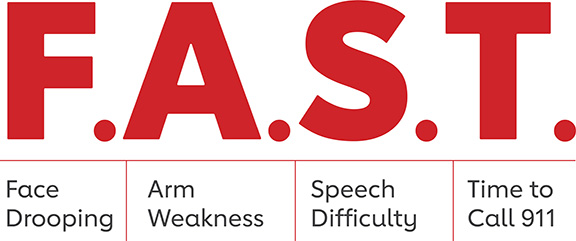Know Your Stroke Risk Factors
Some Stroke Risk Factors are Beyond Our Control
For Hispanics, limited English proficiency may hamper efforts to prevent stroke.
What is Stroke?
Stroke is a disease that affects the arteries leading to and within the brain. It is the No. 5 cause of death and a leading cause of disability in the United States.
A stroke occurs when a blood vessel that carries oxygen and nutrients to the brain is either blocked by a clot or bursts (or ruptures). When that happens, part of the brain cannot get the blood (and oxygen) it needs, so it and brain cells die.
Stroke can be deadly, but there are many risk factors that can be controlled through proper diet, exercise, and managing chronic health conditions such as high blood pressure, cholesterol, and diabetes.
Act F.A.S.T. - Save Lives
If you’re having a stroke, it’s critical that you get medical attention right away. Immediate treatment may minimize the long-term effects of a stroke and even prevent death. Thanks to recent advances, stroke treatments and survival rates have improved greatly over the last decade.
The warning signs for a stroke are the sudden onset of the following:
- Weakness, numbness or paralysis on one side of your body
- Slurred speech or difficulty understanding others
- Blindness in one or both eyes
- Dizziness
- Severe headache with no apparent cause
Educate yourself on the warning signs of stroke — and do it F.A.S.T.
